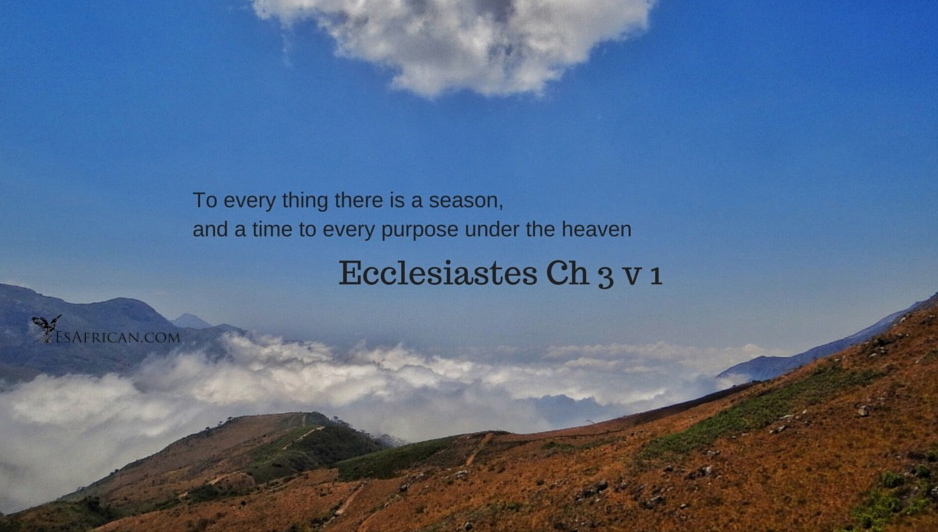Part 2 of a Blog Series on Time
A Malawian View of Time
 Time: Reflecting while looking across Mulanje from the route ascending Dzole from the Minunu Hut side.
Time: Reflecting while looking across Mulanje from the route ascending Dzole from the Minunu Hut side.
A Malawian friend told me some time ago about how time is conceptualised in a different way in Africa when compared with how people think about it in the west.
Having reflected a little bit on what he said I am thinking that it fits in with my previous 'Time' series of blog posts on time (How Lifestyle Affects Time).
It was explained to me that in Africa time is more typically thought of a going around (in a circle) rather than going forward only in a straight line (a western way of thinking about it).
 Children: In Malawi you should take time for people...not just tasks or thingsSo, for example in Africa if something does not happen at this time today, it might well happen around about this time tomorrow. Or perhaps expressed in a slightly different way, 'that sort of thing needs to happen, perhaps in the morning, or in a particular context and if we miss that point now well then circumstances will come together in the right way again later, possibly tomorrow'.
Children: In Malawi you should take time for people...not just tasks or thingsSo, for example in Africa if something does not happen at this time today, it might well happen around about this time tomorrow. Or perhaps expressed in a slightly different way, 'that sort of thing needs to happen, perhaps in the morning, or in a particular context and if we miss that point now well then circumstances will come together in the right way again later, possibly tomorrow'.
Presumably then therefore if we did not achieve such and such today then instead we achieve this alternative thing instead or perhaps today we had to spend time with people and the task will still be achieved - except perhaps tomorrow rather than today.
The ‘roundness of time’ however may as well apply to the week, or month or year.
A Western View of Time
How would this therefore fit in with my previously expressed ideas on time? Well, to answer that I think we need to look at the western concept of time running in a straight line.
 David Livingstone: The great doctor had other kinds of meetings. He took time to comply with local customs. When a stranger he waited outside until he was welcomed in.In the previous blog post on time I gave the example of two people meeting at a very precise point in time (10.45 am) and place (Embankment tube station in London). Where time is linear (and does not come back round), the mportant point is that if this meeting in time and space does not happen (e.g. one of them is late), then it may never happen. The opportunity, due to the reality of life in a large busy city like London, may never reoccur. So, if that particular meeting does not happen exactly as scheduled it may well be a big problem as the opportunity may be gone...forever.
David Livingstone: The great doctor had other kinds of meetings. He took time to comply with local customs. When a stranger he waited outside until he was welcomed in.In the previous blog post on time I gave the example of two people meeting at a very precise point in time (10.45 am) and place (Embankment tube station in London). Where time is linear (and does not come back round), the mportant point is that if this meeting in time and space does not happen (e.g. one of them is late), then it may never happen. The opportunity, due to the reality of life in a large busy city like London, may never reoccur. So, if that particular meeting does not happen exactly as scheduled it may well be a big problem as the opportunity may be gone...forever.
However, if the pattern of life in a smaller community reoccurs every day / week / year, then the same thing can be done...tomorrow.
This then is how I reconcile in my mind the insight I was given about time being 'round' in Africa (as opposed to linear in the western mindset) with my own thoughts about how lifestyle and circumstances affect views on time and how that relates to meetings and tasks.
Einstein’s Space Time Continuum
Anyway, which of the two concepts regarding time is correct? I don't know but I think we should consider which is more consistent with Einstein's space-time continuum (I know other's thought of it first but his work was important)... Well, if you think about it, the African way of thinking about time is more consistent with the logic of the space-time continuum because really we should be able to go back to the same point in time just as we can return to the same point in space.
Practicalities
 Mulanje Mountain: viewing the world below from the peace and tranquility of the plateau edge is the ideal place and time for reflecting on why things can different in different places.Returning to a more serious point now, how does the concept of time being round affect practicalities? Let us say for example that a certain point in time today, and this evening has been scheduled for such and such a task or meeting or decision. Practically speaking other activities and priorities will impact upon plans that have been made. If time is linear then other events must be interrupted, curtailed or cut short in order to meet the requirements of the scheduled event or meeting – otherwise the time for the scheduled meeting may never return. On the other hand if all the required participants will be here this time tomorrow, or at the same point next week then there are fewer demands for an interruption or curtailment to what is being done now.
Mulanje Mountain: viewing the world below from the peace and tranquility of the plateau edge is the ideal place and time for reflecting on why things can different in different places.Returning to a more serious point now, how does the concept of time being round affect practicalities? Let us say for example that a certain point in time today, and this evening has been scheduled for such and such a task or meeting or decision. Practically speaking other activities and priorities will impact upon plans that have been made. If time is linear then other events must be interrupted, curtailed or cut short in order to meet the requirements of the scheduled event or meeting – otherwise the time for the scheduled meeting may never return. On the other hand if all the required participants will be here this time tomorrow, or at the same point next week then there are fewer demands for an interruption or curtailment to what is being done now.
I am sure that we can see how this can be argued in a different way. An immovable deadline enforces some sort of discipline and for many, in most circumstances, this may seem preferable. However, surely we can see that this is subjective and may largely depend upon what exactly is being cut short or curtailed. There are numerous variables to consider e.g. does the activity now being done need to be completed before we move onto the next item on the timetable? Perhaps, if we stick too rigidly to our timetable then we will not only not complete the current task but we may waste all of the time already spent.
How Bad is Your Timetable?
Another variable may well be how good or bad the initial estimates and plans were regarding the timetable. Surely an unrealistic timetable must be a factor in letting the timetable slip and in accepting the cost of being late. There must be numerous factors which affect to what extent a timetable must be adhered to. One of those factors must be the subject of this post. Is time round (can we do it again next time) or is it linear (this is our one opportunity)?
What practical examples may be useful to illustrate this point? If you are a western visitor in Malawi and you are leaving then clearly your time is constrained and if you don’t speak at the meeting today, you will not be here at the next meeting this time next week. If you are a local member of the community and you are almost always here or if your daily and weekly routine is highly predictable, then you will return to the same meeting at the same time in the same place next week.
The Rat Race and Being Inconvenienced
Our dysfunctional western lifestyle is less attuned to the rhythms of nature and the seasons, some call it the rat race. You don’t schedule your cocktail parties according to whether it is time to plant or harvest do you?
 Lake Malawi: would you be willing to wait here? Perhaps this is where we like to take our time. Maybe we are rushing to get here. Others may not have the Lake on their schedule and are looking forward to time spent with you.A further factor to reflect upon would be a view of how much of an inconvenience it is to wait. If you are a rich person accustomed to an exciting, varied and expensive lifestyle where you rush between incredibly exciting events and meetings, then you are in a very different situation to someone whose life is governed by the daily and annual toil involving planting and predictable daily routines. If you are accustomed to whirlwind of different activities and are visiting Malawi then you will not necessarily leave the mindset that you require for your busy professional and social life in London and New York behind when you step on the plane in Malawi. This is understandable. You may well be meeting some people at a project in a remote village in Malawi, but you may well have your mind on xyz other meetings and locations in Malawi, including perhaps a trip to a nice location at Lake Malawi… Your mindset may be that you are at a particular point on an itinerary and you are on a journey. However, from the perspective of some of the people in the village that you are meeting with, you have arrived. The difference between being at a point on a journey, and having arrived, are very different when one considers attitudes to time. If you are a visitor to Malawi then the point in time when you are happy to stop and relax and chat to whoever you are with may be either, when you are sitting on your deckchair at a particularly beautiful point on Lake Malawi, or when you are back on the plane going home. For your host in the village which was on your itinerary, the point in time when you are with them may well instead be the time to spend time talking and with people. If that is exactly the time when you are feeling anxious about time and the next engagement, then there may be a mis-match.
Lake Malawi: would you be willing to wait here? Perhaps this is where we like to take our time. Maybe we are rushing to get here. Others may not have the Lake on their schedule and are looking forward to time spent with you.A further factor to reflect upon would be a view of how much of an inconvenience it is to wait. If you are a rich person accustomed to an exciting, varied and expensive lifestyle where you rush between incredibly exciting events and meetings, then you are in a very different situation to someone whose life is governed by the daily and annual toil involving planting and predictable daily routines. If you are accustomed to whirlwind of different activities and are visiting Malawi then you will not necessarily leave the mindset that you require for your busy professional and social life in London and New York behind when you step on the plane in Malawi. This is understandable. You may well be meeting some people at a project in a remote village in Malawi, but you may well have your mind on xyz other meetings and locations in Malawi, including perhaps a trip to a nice location at Lake Malawi… Your mindset may be that you are at a particular point on an itinerary and you are on a journey. However, from the perspective of some of the people in the village that you are meeting with, you have arrived. The difference between being at a point on a journey, and having arrived, are very different when one considers attitudes to time. If you are a visitor to Malawi then the point in time when you are happy to stop and relax and chat to whoever you are with may be either, when you are sitting on your deckchair at a particularly beautiful point on Lake Malawi, or when you are back on the plane going home. For your host in the village which was on your itinerary, the point in time when you are with them may well instead be the time to spend time talking and with people. If that is exactly the time when you are feeling anxious about time and the next engagement, then there may be a mis-match.
 Up Next on Time: practical steps for time management in Malawi when handling inter-cultural scenarios.Next – Practical Strategies for Time Management
Up Next on Time: practical steps for time management in Malawi when handling inter-cultural scenarios.Next – Practical Strategies for Time Management
I have it in mind to write further on the subject of time and in this case it is to do with attitudes towards the inconvenience, or otherwise, of being made to wait. As always it is important to consider the ‘whys’ of this. In particular I am interested in writing about practical strategies for organising your time so that you do not feel as though you are wasting your time when you do find yourself waiting.
